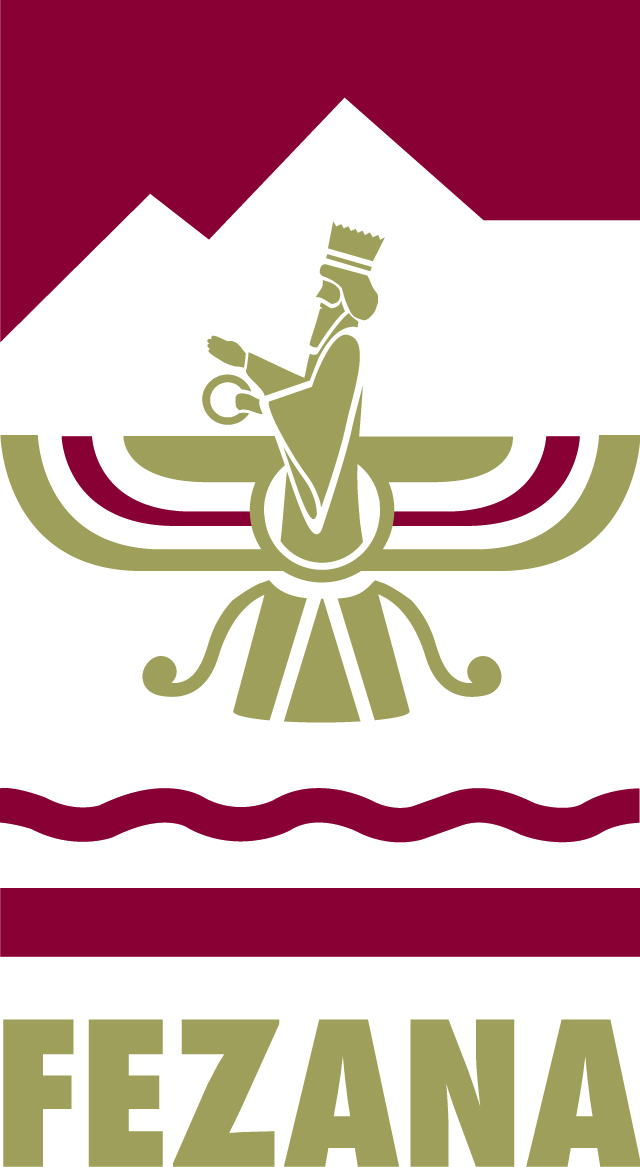Search
26 items
-
Engaged Organizations: Friends Committee on National Legislation
The Friends Committee on National Legislation (FCNL) was founded in 1943 by members of the Religious Society of Friends (Quakers). FCNL is a nonpartisan organization that seeks to live their lives based on values of integrity, simplicity, and peace as they build relationships across political divides to move policies forward. FCNL is comprised of an expert team of lobbyists on Capitol Hill who work with a grassroots network of tens of thousands of people across the country. They lobby Congress and the administration in order to advance peace, justice, opportunity, and environmental stewardship. -
Engaged Organizations: St. Vincent de Paul School, Mt. Vernon, OH
Creation care work at St Vincent de Paul School, Mt. Vernon, began in 2006 when the school received funding from the Knights of Columbus to purchase a dishwasher for their kitchen. Following this, the school began participating in the Hope Now program – an organization that provides used old donated doors to build tables. The school provides transportation to their annual K-6 field trip to The Brown Family Environmental Center at Kenyon College and their annual 5th grade summer camp through Lutheran Outdoor Ministries in Ohio (students take turns weighing food waste). Additional sustainability projects include collaboration with the parish and the local community. The school participated in an all-parish project through the Green Tree Plastics company’s A Bench for Caps sustainability program (students collected and sorted bottle caps in exchange for three benches). The school plans to create a grotto area using their three recycled benches. In order to foster green living and healthy community-school relations, the school provided planter flowers to local businesses.
Administrators at St. Vincent de Paul acknowledge the importance of maintaining social justice programs in accordance with Laudato Si's urgent message to care for the poor. Students from Beth’s Robinson's 6th grade social studies classes participate in a demographics project. Each year students select one continent, usually Africa, to learn more about the conditions of poverty. The class then raises money through various fundraisers and donate to parts of the continent through Catholic Relief Services. An upcoming project includes having students sew plastic bags together to create tarps to be donated to homeless shelters in the area.
-
Engaged Organizations: Trinity Catholic Elementary School, Columbus, OH
Creation care work at Trinity Catholic (see link below) began when one teacher there took the initiative to organize student gardening activities on school grounds. Following her retirement, the school subsequently began an annual Earth Day project in which students pick up trash around the school and surrounding area. Additional creation care projects were added over time. As a means to support social justice issues in accordance with Laudato Si' principles, the school contributes to food pantries on a regular basis. The proceeds from the monthly cereal mornings are designated to various local charities as well. As a way to physically demonstrate to students how much food is wasted in a typical day, students could weigh and record the wasted food from the cafeteria over a two-week period.
Years ago, one of the technology instructors had received a small grant from a computer company, which was designed to have students complete various environmentally based activities in a contest format. At the end of the contest, the class had accumulated enough points to receive two computer cameras. Additional events and projects includes 4th and 5th grader participation in a 5-day environmental camp "Messages of the Earth" at the Stratford Ecological Center (see link below), two water fountains updated to accommodate individuals with disabilities, design of the water fountains to fill water bottles, and lights throughout the school buildings switched out to LED lights through the Diocesan grant program.
-
Engaged Organizations: Catholic Diocese of Columbus, OH Development and Planning
Andrea Pannell, Episcopal Moderator for the Columbus Catholic Diocese, has been instrumental in the progress of creation care work within the office of development and planning. She views part of her job as to "plant seeds" whenever possible. The Bishop Pastoral Council, comprised of representatives from deaneries within the metro area, attend periodic meetings to address critical creation care issues. One project takes place at Andrea's own parish, St. Dominic’s Church, in the Mt. Vernon neighborhood of Columbus. They had maintained a vegetable garden to provide food for those in the area, some of whom rely on walking to get their groceries. The garden continues to be the only place for some locals to receive fresh food, as the area is considered to be a food desert. The development office was also key in linking the diocese's 150th anniversary and Laudato Si' with their tree planting initiative, as well as connecting the themes of the anniversary with salient points of Laudato Si'. Additional plans for further connections with development, planning and stewardship are still in the works.
-
Engaged Organizations: Orita's Cross Freedom School
The mission of Orita's Cross Freedom School is to cultivate student's natural sense of curiosity and skills to become agents of change within their community. They are a solution-oriented group, addressing pressing societal issues such as racism, gentrification, gender inequality, and the prison industrial complex. Some ways that the school promotes learning through doing includes civic engagement demonstrations, mentoring, and cultural awareness programs. -
Engaged Organizations: Black Church Food Security Network
The Black Church Food Security Network strives to provide fresh produce to historically Africa American churches within the Baltimore Metro area. Their popup farm stands provide convenience to the public as they are able to set up during times when congregation members typically gather. Ideally, members will either start their own gardens on site or expand ones that they currently maintain. Often, the farmers or urban growers will offer to lead bible studies and include food security issues as part of the sessions. -
Engaged Organizations: National Council of Churches Eco-Justice Programs
The National Council of Churches (NCC) discuss their work through their eco-justice programs on their website:
"The National Council of Churches has been a prophetic voice for justice and peace for its entire existence. In recent years, the NCC has been involved in a diverse range of issues such as poverty alleviation, protecting the environment, racial justice, and responding to the particular concerns of women. The NCC continues to remain engaged in these areas; however the primary program work in some cases has been spun off to new organizations that continue to bring the ecumenical community together to struggle for justice." -
Engaged Organizations: Web of Creation
The Web of Creation website discuss their organization aim and services that they provide:
"The Web of Creation was established to foster the movement for personal and social transformation to a just and sustainable world from religious perspectives. To that end, the information at this site will:
-Connect you with ideas, resources and strategies for doing eco-justice
-Inform, inspire, encourage, educate you about eco-justice
-Support you in your efforts to live, work and pray in ways that promote eco-justice
The Web of Creation has also been developed to provide information and connections for theology students interested in environmental ministry." -
Engaged Organization: The Dream Corps
The Dream Corps is a social justice organization, designed to reach across racial, social, and partisan lines to create a future with freedom and dignity for all. The founder, Van Jones, is scheduled as the keynote speaker at the Midwest Regional Sustainability Summit held in June in Cincinnati. They support economic, environmental, and criminal justice leaders in order to tackle America’s social justice challenges. Their slogan is “21st-century jobs, not jail." Initiatives include #YESWECODE, #CUT50, and Green for All. -
Marianist Environmental Education Center
"The Marianist Environmental Education Center (MEEC) is an environmental education community in the Catholic tradition. In Mary's hope-filled spirit, we preserve and act in communion with the land and educate other communities in sustainability through ecology-based simple living, social justice and spirituality." -
MLK Day 2024
"ServeOhio Funds 19 Statewide Service Projects Taking Place in celebration of MLK Day
These grants support more than 1,300 volunteers engaging in local community service projects across fifteen Ohio cities
ServeOhio, the Governor-appointed commission on service and volunteerism, announces grant awards to support 19 local Martin Luther King Jr. Day of Service projects throughout January totaling more than $25,000. Much like Dr. King’s legacy, these grants will help nonprofits across the state improve their communities through service and volunteer activities. The grants will fund service projects in fifteen Ohio cities led by more than 1,300 volunteers.
Each project commits to bringing volunteers together to create or improve community assets or infrastructure and supports local community engagement and impact. Additionally, every project includes an education component based on Dr. King’s message of peace, unity, and service to create long-term, sustainable change.
ServeOhio awards these grants with support from the American Electric Power Foundation. Each grant totals between $250 - $1,500." -
A Jewish Response to Environmental Stewardship: LEEDing the Way
The article highlights Temple Israel of Minneapolis's achievement of LEED Gold Certification, reflecting their commitment to sustainability through a multi-year renovation project. This accomplishment aligns with their Jewish values, particularly the principle of Pikuach Nefesh, which emphasizes protecting life and the environment. The synagogue's efforts extend beyond their building to include community-wide initiatives such as climate action resource fairs and partnerships with environmental organizations. Their ongoing commitment to sustainability is showcased through continuous improvements and active participation in broader climate justice movements. -
Engaged Organizations: The Shalom Center
The Shalom Center discusses their three major program priorities on their website:
"(1) Addressing the Global Climate Crisis, especially drawing on Jewish and other religious teachings about shaping a sustainable society; coping with the problems created by unacccountable concentrations of corporate and government power in making change difficult; and working on these issues with special concern for those most vulnerable and most hurt as the climate crisis unfolds.
(2) Addressing unjust and destructive concentrations of political and economic power in the hyper-wealthy and in giant global corporations — power that corrupts democracy, including elections, and delivers enormous “benefits” to those who wield the power while depriving the poor, the aged, the sick, Black and Latino and Native communities, much of the middle class, and large numbers of women of ways to meet their individual and social needs.
(3) Peacemaking, especially among the Abrahamic communities both within the USA and in the broader Middle East, where violence is especially intense and where it engages intense emotions in the overlapping circles of the Jewish community, the other Abrahamic communities, and the American public generally." -
Engaged Organizations: United States Conference of Catholic Bishops: Migration and Refugee Services
United States Conference of Catholic Bishops: Migration and Refugee Services provides its mission statement on its website:
"Grounded by our belief in Jesus Christ and Catholic teaching, Migration and Refugee Services (MRS) fulfills the commitment of the U.S. Catholic bishops to protect the life and dignity of the human person. We serve and advocate for refugees, asylees, migrants, unaccompanied children, and victims of human trafficking." -
Engaged Organizations: Columban Center for Advocacy and Outreach
Columban Center for Advocacy and Outreach serves as a line of communication between Columban missionaries and policy makers in Washington D.C. Missionaries are stationed in 16 countries around the world, bringing attention to environmental justice issues that are most pressing for marginalized populations in the areas. Their primary focus is combating human-induced climate change. In addition, they advocate for sustainable development and agricultural systems, and right to clean water. -
Engaged Organizations: Ignation Solidarity Network
Ignation Solidarity Network discuss their work as it relates to Pope Francis's Laudato Si' encyclical to care for creation and our common home. As stated in their website:
"In his historic encyclical on ecology, Laudato Si’, Pope Francis calls on all people to care for creation and our common home. Pope Francis makes clear that our care for one another and our care for the earth are intimately connected, noting that humanity is not faced 'with two separate crises, one environmental and the other social, but rather one complex crisis which is both social and environmental.' (Laudato Si’: On Care for Our Common Home)."
"We ask our government leaders to demonstrate bold leadership in addressing the climate crisis by honoring the Paris Agreement, contributing to the Green Climate Fund, implementing the Clean Power Plan and supporting just transition and job creation." -
Engaged Organizations: Global Catholic Climate Movement
Global Catholic Climate Movement discuss their identity and mission through the following excerpts from their website:
"Who we are
The Global Catholic Climate Movement is a first-of-its-kind international coalition of Catholics from many nations, continents, and walks of life. We are laity, religious, and clergy, theologians, scientists, and activists from Argentina, the Philippines, the United Kingdom, Kenya, Australia, the United States, and many other nations. We are united by our Catholic faith and our work in various roles and organizations on climate change issues."
"First, we recognize that conversations about the climate crisis have historically been more about intellectual arguments than about the profound spiritual and moral implications of our failure to care for God’s creation. Catholic leaders are thus called to speak with a prophetic voice and in a spiritual dialogue with all people, especially those political and business leaders and consumers who engage in climatically destructive policies and practices. And we recognize our own need for ongoing conversion to live more in keeping with the Creator’s intentions for life in abundance for all people. Until the moral implications of anthropogenic climate change are clearly established and accepted, it is unlikely that societies can or will transition in an appropriate timeframe to sustainable technologies, economies, and lifestyles." -
Engaged Organizations: Association of United States Catholic Priests
The Association of United States Catholic Priests discuss their climate change initiative on their website. The following excerpt list the first five "Green Commandments" from Fr. Joshtrom Isaac Kureethadamof's book on Laudato Si':
"Earth, our common home, is in peril. Take care of it.
Listen to the cry of the poor who are the disproportionate victims of the crisis of our common home.
Rediscover a theological vision of the natural world as good news/gospel.
Recognize that the abuse of creation is ecological sin.
Acknowledge the deeper human roots of the crisis of our common home." -
Engaged Organizations: Sadhana: Coalition of Progressive Hindus
Sadhana is a non-profit organization that is committed to promoting environmental and social justice through the values of the Hindu faith. The NYC Service website summarizes what Sadhana is about:
"We have mobilized Hindus in New York City and beyond to stand up for social justice causes including environmental justice, racial and economic justice, gender equity, immigrant rights, and anti-casteism. We bring a Hindu voice to the interfaith justice movement. We have chapters and members around the country and abroad. We engage and mobilize progressive Hindus nationally and internationally using social media." -
Engaged Organizations: Islamic Society of North America
The Islamic Society of North America, headquartered in Plainfield, Indiana, has been described as the largest Muslim community in North America. Their vision includes empowerment of the Muslim community to strengthen interfaith relations, increase civic engagement, and promulgate a better understanding of the Islamic faith. They strive for organizational excellence, achieving this in part through their efficient operations, transparency, and financial stability. They seek to achieve their strategic goals by providing high quality programming and services for the Muslim community, increasing opportunities for civic engagement, and hosting an annual convention to gather in large numbers and discuss current issues that are affecting their community.
Part of the organization's mission is to focus on increasing sustainable practices within the Muslim community. Through the work of the Masjid Development Committee in December 2014, the ISNA Green Masjid Initiative Team was formed as “Green Masjid Task Group” and later renamed the "ISNA Green Initiative." The intent was to create awareness and to provide guidance on transforming mosques/Islamic centers to become more environmentally friendly through the use of sustainable practices. -
Himalayan Institute
Founded in 1969 by the great teacher and humanitarian, Swami Rama, the Himalayan Institute acts on the basis of yoga tradition and Eastern spirituality. Through the living connection to an ancient wisdom tradition of the Himalayan Masters, and the guidance of spiritual head Pandit Rajmani Tigunait, the Himalayan Institute seeks to serve communities across the globe of those who seek to live their spiritual values. The institute provides resources for anyone seeking spiritual wellness such as yoga and meditation training, local retreats and seminars, and domestic and international excursions, frequently taking the form of a trek through the Himalayas. The Himalayan Institute strives for sustainable living in partnership with the community in Honesdale and also in their projects in India and Africa- providing sustainable living, jobs, and farming in several different communities. -
The “Green Team”, Community Synagogue of Rye
The “Green Team” at the Community Synagogue of Rye in Westchester, New York works to create projects that focus on sustainability within their congregation, and in the surrounding community. Through renewable energy initiatives, community supported agriculture, youth involvement, group nature hikes, and other related projects, the Green Team approaches environmental stewardship through the lens of Jewish teachings and scripture. They work closely with the Westchester Jewish Greening Group, a related religious environmental organization, in efforts to bring more sustainable, “greener” practices to the Westchester County community. Through these activities and initiatives, the Green Team works to live out the value of Tikkun Olam - ‘repairing the world’. -
Federation of Zoroastrian Associations of North America (FEZANA)
FEZANA is a non-profit religious group registered in the state of Illinois and formed to function as the coordinating organization for Zoroastrian Associations of North America. It serves as the coordinating body for 27 Zoroastrian Associations in the United States and Canada.
On this website, you can learn more about the community of FEZANA , Zoroastrianism, their sustainability reports and other social activities.
-
Green Umbrella Impact Team: Faith Communities Go Green
MISSION: Partnering with religious communities to create a more sustainable and equitable future for all by mobilizing their moral voice to reduce the risk of catastrophic climate change.
VISION: Religious communities collaborating to integrate care for creation in their lives and society. -
Green Shinto
Green Shinto is a blog by John Dougill operating out of Kyoto, Japan, which is dedicated to the promotion of an open, international and environmental Shinto. It seeks to celebrate the rich heritage of the tradition, from sacred rocks and shamanistic roots to bawdy myths and fertility festivals. It believes Shinto to be essentially diverse, localised, and community-oriented. It looks to a Shinto free of borders, liberated from its past to meet the demands of a new age. It looks in short to a Shinto that is green indeed as well as in word.

























